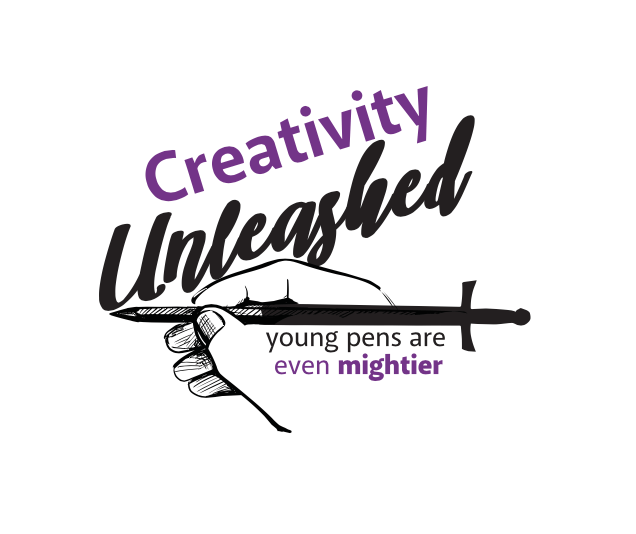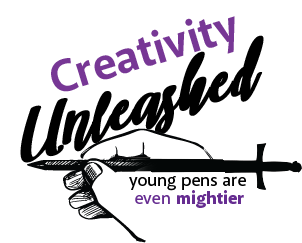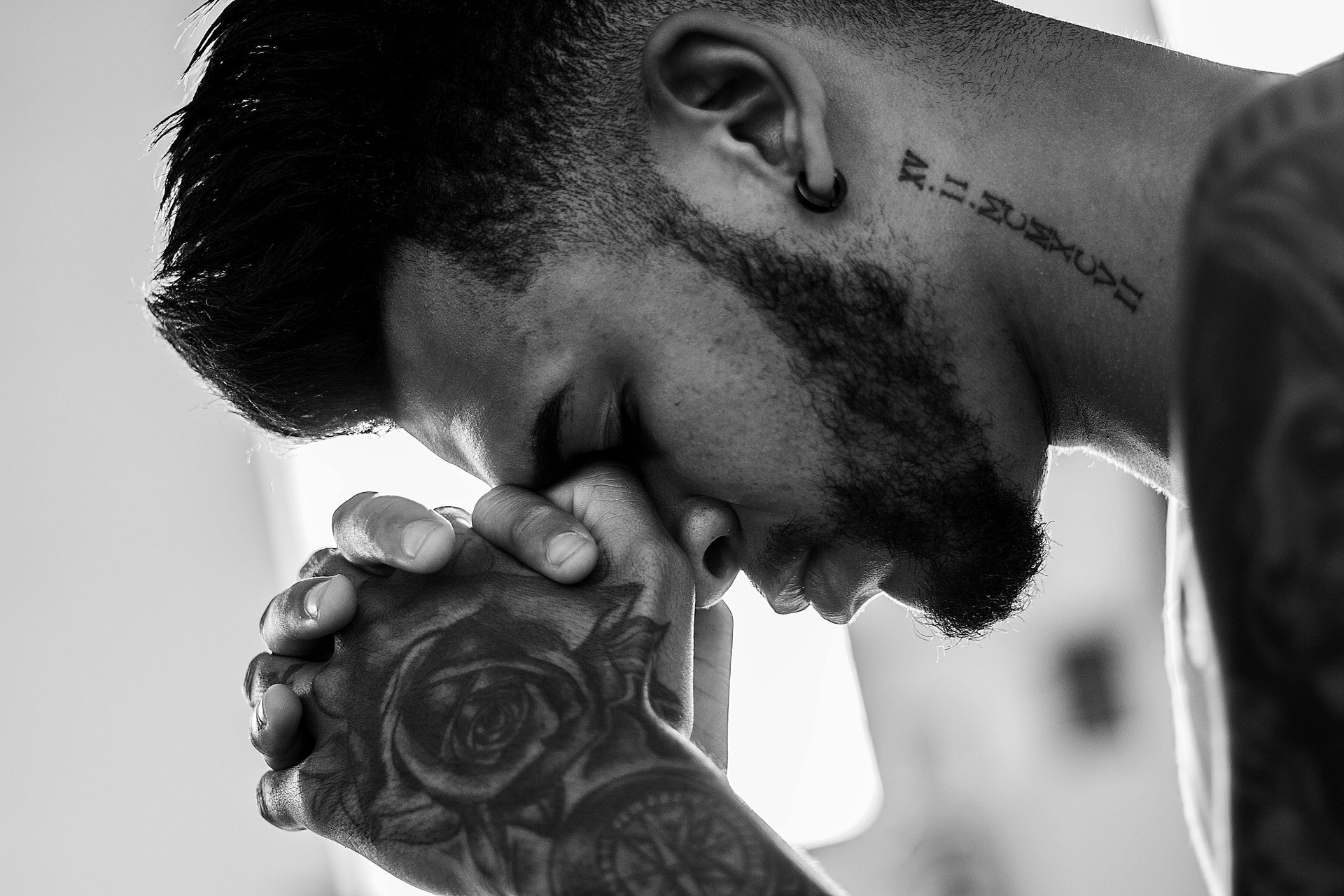Drowning in Eye Medicine — How A Medical Profession Almost Blinded Me
Written by Kaylee Da from Rectory School — Connecticut
I live and breathe in a city that has the highest electricity bill. Hong Kong. It is a tourist spot where the night is unending. When you climb up to Victoria Peak, you’ll see hundreds of skyscrapers glowing, radiating the dark sky into something wonderful. And if you’re ever near the sea, you’ll witness its vivid colors reflected off the city’s buildings.
If you’re luckier yet, you’ll find me leaning against the fence, exfoliating in the ocean breeze, admiring the view like a traveler even though I’d seen this exact scene for eight years. You can catch me pointing at different buildings, asking my auntie about each one of them.
Even as a child, that night view had a special spot in my heart. I hoped one day to grow old and crooked, still smiling like a child up at those powerful skyscrapers as they looked down at me, grinning back. I could never have imagined that something so precious could be taken away from my eyes, especially at such a young age.
You see, the once-striking night sky of Hong Kong began to change - and it seemed that it was only changing for me. When it did, something sank inside of me; I couldn’t handle the blink of my future blurring. I began to wake up every morning only to be welcomed by worsening vision.
As a young child, I’d stare directly at the sun. The fierce, piercing light of that glorious orb brought black dots before me, but never did it hinder the way I could see beyond that momentary blur. Yet here, at the age of 12, I couldn’t even look at a red traffic light at night without flinching in pain, let alone the glorious shifting orbs of the Hong Kong night line. I was too young to be going blind…right?
I still vividly remember the first time I noticed the change. I stared at the ceiling in my bedroom at night, completely exhausted, spending hours reading an online comic book that kept on putting cliffhangers at the end of its chapters. Almost blinking away to sleep, I noticed that the ceiling light had become bigger than I’d recalled. Though the difference was slight, a wave of worry hit me. At first, I tried to persuade myself that it was just a today-kinda thing, that if I woke up the next day, the lights would go back to normal. But they didn’t. They got worse each day I woke up. Yet despite the obvious symptoms that my sight was failing, I tried my hardest to remain safe in blissful ignorance. What I didn’t know couldn’t hurt me. It took me ages before I confided in anyone about what was happening to me.
Now I can see that I should have asked important questions. What was happening to my eyes? How had they become this weak? Was it the crying or the way I had put on my night contacts? Was it stress or was it constant rubbing?
I can still remember the visceral panic that hit me as I looked outside my window to the city I loved and didn’t recognize what I saw.
I had never seen the view look like this before. Though it was dangerously beautiful, it felt wrong. The buildings stood slanted, the lights adorning different positions. A huge glow hovered centrally, and sparks were flying everywhere. The once-lit-up night sky of Hong Kong was now filled with rainbows and shiny streaks of glare. It was hard to keep my eyes open, so I covered them with my hands - what was happening?
Despite my panic, I suffered initially in silence. You see, I also have this thing where I don’t like asking for help - it makes me feel weak and nervous. So I kept my struggle alone, within me, until I couldn’t hold it in anymore until the sneaky secret seeped into my brain and pressed that panic button. It set my whole body on fire until thoughts ran rampant through my head and crescendoed into a scream for help.
At the time, there was a small, travel-sized eye drop bottle sitting at the top of my mom’s jewelry closet. I had no real idea of what eye drops were, but I knew it was a sort of medicine to make your eye feel better. My mind was too innocent to predict the amount of eye medication I would be on in the not-too-distant future.
So I tiptoed across the room, climbed up levels that divided the small closet into parts, and reached my hand on the top of the glass trying to find where the “magic drops” lay. When my little fingers failed to connect to what I desired, I turned to my mother.
“Where are your eye drops?”
“What eye drops?” My mom looked busy, texting.
“You know, the ones that wet your eyes, the ones you had on your shelf?”
My mother thought for a moment, but before she could answer my question, she asked one of her own: “Why do you need them?”
I had hoped she wouldn’t ask that.
“Just…” I thought about lying, about telling her that I had woken up today with dry eyes. But then I looked at Mom, and I realized then that nothing could ever bring me to lie to her. To be frank, I was tired of lying to myself every day. And before I knew it, tears fell across my cheeks. My mom’s face turned confused, the type of expression often followed by goosebumps knowing things were going to get serious. I told her that I worried my eyes were starting to decompose, that my vision was slowly slipping away so that I couldn’t grab it back. I had lost control.
Thus began a journey of hopelessness for me and my mother and we consulted doctor after doctor about my eyesight. We both needed someone to look me in the eye and tell me in comfort that this was going to be okay, that they knew how to treat and heal and understand, to tell me this could be gone, this could be fixed, and that my eyesight would be healthy once more.
I trusted that a professional doctor would sit me down and share the fruits of all their years researching the eyes and their resultant discovery that I longed for: the cure. Instead, we spent thousands of dollars on consultations, and waited hours and hours just for any hope of relief to dissipate when we were casually moved on from doctor to doctor, their final words almost mocking us: “I don’t know.”
The first doctor we went to was the one who paired us with night contacts. He said, with considered confidence, that if I rested my eyes for two weeks, they would return to normal. When this didn’t work, he, too, seemed baffled. What followed then was a string of further doctors struggling to find the issue and solution to my ailment. Each professional returned vague answers to our questions with little to no explanation. Moving from hospital to hospital only to be greeted by a sea of: "I don’t see the problem" from professionals who boasted high levels of knowledge with medical certificates hanging on their walls, my doubt turned into anger.
From one experiment after another, I became an expert in the procedure of eye exams. I knew exactly what the doctor wanted me to do, say, and tell upon entering each office. I could guess the doctor's words one by one at the back of my throat.
The longer this journey went on, and with every relentless attempt at explaining the situation to each new doctor, my eyes teared up and my voice wobbled. I had so much to say but so little to tell. Maybe it was their tired or cold stares, but I eventually began to feel judged by the doctors, almost as if they believed I was making things up. I was utterly lost and losing the will to even wield my voice. Eventually, the only word I could say was: "Okay."
Finally, or so I thought, the doctors turned their efforts towards prescribing me with special eye drops. So the “solution” to this unknowable problem saw me inserting six to seven drops a day into my battered eyes. Unfortunately, rather than bringing clarity to what I could see, the medication exhausted me and worsened my eyes further. Once, even, a nurse mistakenly assigned the wrong medication, giving me high eye pressure. As you can see (pun intended), everything that could go wrong did, and this was just the beginning.
I felt too tired to open my eyelids and too tired to close them shut. Going outside in the now “highly eye-sensitive season,” my eyes wanted nothing more than to close, but shutting them simultaneously felt impossible. A powerful pressure from the hot sun punched my eyes when I tried so that I couldn’t keep my eyes shut for long. At night, I would lay in bed and imagine the impact of going blind, unable to see anything, because as the pain of light continued to worsen, the probability of extensive damage seemed higher. Little did I know, though, just how right I was. All I could see was light growing bigger and brighter every time I woke up: all bright, all nothing.
I saw a face of hopelessness across my mom one morning as we neared the end of the academic year. That summer I had planned with my friends to go to the beaches, movies, and amusement parks, envisioning a summer full of shopping, baking, and visiting the places that meant the most to me. I had never intended my last summer in Hong Kong to be crippled by this sort of pain. To be in this desperate situation, knowing I had no one to rely on. To be feeling my optimism slowly starting to fade into something much darker.
Maybe if I had captured more happy memories with friends or taken photos of what even my room looked like then, my last memories of Hong Kong would have been happy. But all I can recall now is a drawer full of prescription boxes in my room. And that residual fear of “everything will go away when I wake up tomorrow” each night that I fell asleep that summer.
I had always wanted to come to the U.S. for a better education. I wanted to experience a lot of things in the U.S. that weren’t given to me back in Hong Kong. I could never imagine that the first thing I would try in the U.S. would be sitting at another ophthalmologist, filling out a confusing form full of information that only I could understand because of a language barrier for my mom. Yes, the problem persisted and even seemed to be worsening.
Going into that first American eye clinic, I admit that I had no hope left. I was holding on only to the needs and positivity of my mother, though my pessimism was palpable.
Upon arrival, I prepared myself for this visit to be a failed one. Before I went to check in with the front desk, I had promised myself that if this didn’t work out and I couldn’t find the solution, it would be my last ever eye exam. I would succumb to the defeat and enable whatever would be to be.
I grew up with my childhood best friend Sabrina who had a habit of rubbing her eyes, making them look very bloody afterwards. I was so scared of it happening as a kid, I had feared she’d turn into a monster every time. I shouted in front of her to stop hurting her eyes or else her precious eyes would give up on her. I had screamed it in fear of the monster, but I had realized now it meant something more. She’d stop later on with the habit, and I’d like to believe she had grown scared too.
Sabrina interrupted me: “Were you going to give up?”
“Yea. I was done with it. Emotionally. In the most simple way of explaining how I felt… I was finally okay with the feeling of it not being okay.” I felt incredulous.
“The most simple way to explain this: you have extreme bubbles on both your upper and lower eyelids,” the American doctor told me.
The doctor who was holding a little Q-tip and taking pictures of my under eyelids was right there. How can she be so calm saying that?
The whole room had become completely silent. But it was the type of silence that was so loud it could burst your eardrums.
“Is it curable?” You don’t know how hard it is to ask a doctor such a question when there is a 50/50 risk of the answer until you are in a position to ask it.
The doctor had told me that if this condition had been left as is, the bubbles would have eventually affected my eyes, and completely blinded me. The doctor told me that the bubbles under my eyes were so big that they were scraping against my eye lens, skewing my sight and making it painful. I still get goosebumps thinking about it.
“Yes. I’ll prescribe you some medicine - use it day and night. And hopefully, in a matter of a month, your vision will return to normal.”
That was it. That was the word I’d been craving to hear. NORMAL. The word that hugs me tightly like it missed me. And I missed it too: the joy of normal.
You can imagine how incredible it felt at the time when this wonderful eye doctor almost immediately knew of the foreign body that inhabited my eyes. As an experienced night-contact doctor, she knew instantly what had caused my problems. She even confirmed that previously prescribed medications had indeed been all wrong, exacerbating the problem.
So what was it that she saw that other doctors in Hong Kong had missed? The problem lay under my eyelids and not on my eyes at all. Why hadn’t my previous doctors checked there, I wondered? Had I been a victim of a primitive healthcare service that was damaging people rather than helping them?
When the appointment was coming to an end, my new doctor observed me as I tested out the new medication in her office. “Wow! You are an expert at putting in eyedrops - you do it so quickly and smoothly without flinching.” The doctor marveled at my skill set for someone so young.
“Well, I’ve been doing it for a very long time now,” I smiled up at her gravely.
I hadn’t told anyone about my eye situation except my mom. Sure, my dad knew about my trouble, but not in any great detail. Indeed, even my new classmates questioned my new heroic ability to use eye drops. It wasn’t likely they could relate or feel empathetic about my situation with their blue-eyed 20/20 vision, so I didn’t bother to tell them.
If you’re asking, has it got better? It has. But it hasn’t completely disappeared yet. At night I still see the glare. During the day, I’ll still see repeated light resonating off other lights. But I’ve grown used to it, accustomed to staring at my computer and seeing repeated words that aren’t there. I’ve become used to more sensitive eyes in the summer. I’ve become used to the weird slashes and circles around my ceiling light, and I’m okay with it happening. Understanding what this is makes the experience a little less terrifying; I am now hopeful that the end is in sight (of course this pun is intended too).
For now, I’m okay with the idea of not being able to see the original Hong Kong night view anymore. I’m okay with seeing repeated figures of my mom under the light because she’s beautiful and I love seeing more of her anyway. I’m okay with everything now. I’m not impatient and dying to recover, to get back to “normal.” I’m in no rush because I know it will come, eventually. And I know someday that I’m going to look back and tell my future best friend: “Hey, do you know that I was almost blind once as a kid?”
I wish in some way or somehow that I could teleport back in time to my old bedroom and hug the girl who is silently suffering, afraid to speak up. To calm that girl who is afraid to tell all her problems, afraid to let people into her bubble (yes, pun still intended). Inside of me still today lies that same little girl who bears the burdens of all her problems until she can’t control them anymore. But that little girl has grown and understands that sometimes things will change. That ‘normal’ is a construct.
So, while I may no longer gaze upon Hong Kong’s enchanting night view as frequently as I used to, I appreciate its majesty now much more than ever before, because I know what I almost lost.



